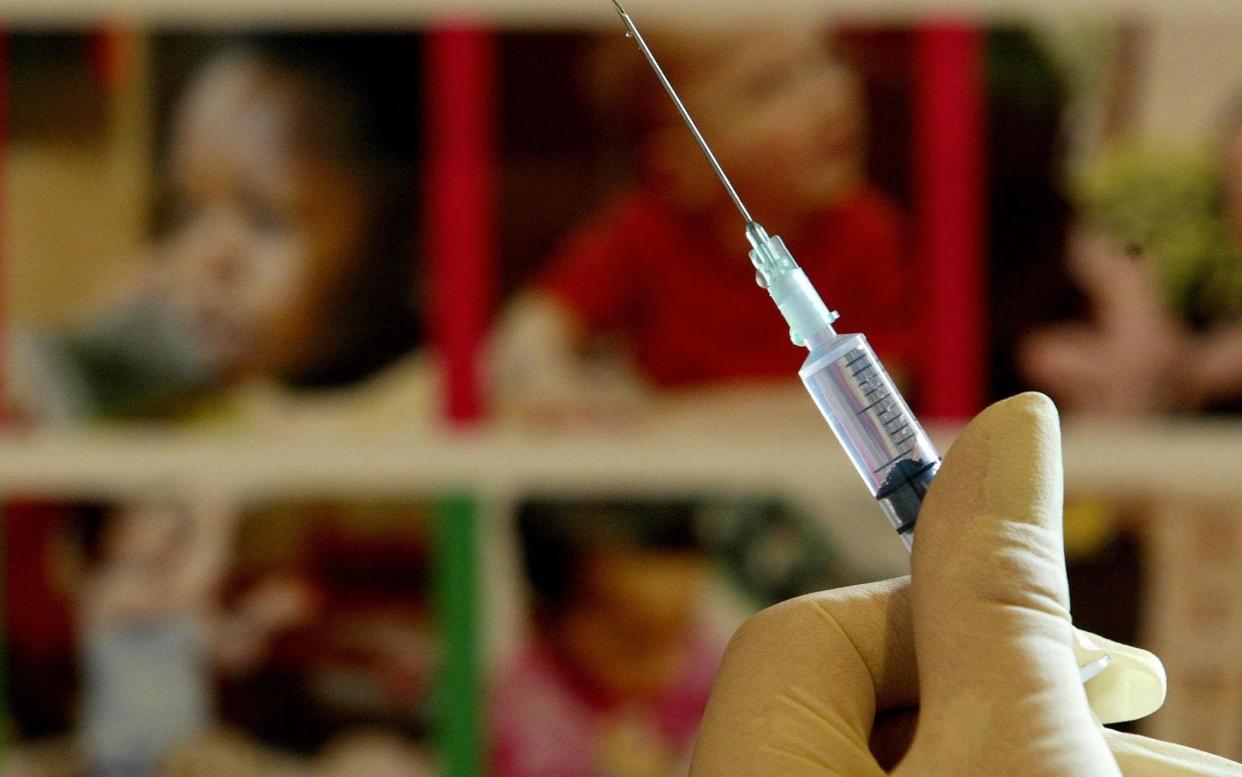The ‘100-day cough’ can be lethal in babies – so what is behind its global rise?

Whooping cough might sound like a Victorian disease, but the bacterial infection has made a dramatic comeback in recent months across Europe, Asia, and America.
The ‘100-day cough’ – known clinically as pertussis – infects the lungs and respiratory system, causing severe coughing fits and flu-like symptoms that can persist for months.
Complications are particularly severe in infants under six months, where the infection can develop into pneumonia, seizures and, in some cases, death. Babies who survive may have long-term neurological or lung damage.
Whooping cough is cyclical and naturally peaks every three-to-five years. It is also endemic to all regions of the planet, according to the World Health Organization (WHO), meaning it occurs naturally in populations.
A jab – developed in the 1950s – helped to almost eliminate the disease in Britain.
But a steady decline in vaccine uptake coupled with a resurgence of respiratory diseases following Covid lockdowns have contributed to rapidly rising case numbers – with this year the worst on record since the mid-1980s.
‘This outbreak is huge’
In January and February alone, England recorded 1,468 cases – compared to just 823 for the whole of 2023.
In the Czech Republic, cases are so widespread that criminal charges were filed against Prague’s mayor, accusing him of allowing the infection to spread through reckless public health decisions. So far, the country has seen over 6,300 infections since January, and at least three infant deaths.
Parts of Asia are also struggling to contain the disease. In the Philippines, 54 babies have died this year, whilst in China, 30,000 have come down with the infection since January.
“This outbreak is huge, and it’s not dissimilar to what we saw 40 years ago,” explained Dr Paul Hunter, Professor of Medicine at the University of East Anglia.
“When Covid hit, a lot of vaccination rates fell – which is certainly contributing to what we’re seeing now worldwide,” he said.
Health systems worldwide fell behind on routine jabs for preventable diseases during the Covid-19 years, with the largest sustained decline in childhood vaccinations in over three decades.
During that time, the WHO estimated around 25 million children missed out on doses of the pertussis vaccine, which is combined with the jab for polio, diphtheria, and hepatitis B in the UK.
Immunisation rates are still struggling to catch up, allowing communicable diseases to spread more quickly through populations. For instance, cases of measles have soared across the world – to the point where more than half the planet is at ‘high risk’ of an outbreak.
“Another key problem is that vaccination uptake is steadily declining in pregnant women. If you vaccinate the mother, you protect the baby – and they are the ones most at risk,” said Dr Hunter.
Pregnant women need to be vaccinated to protect their newborns against whooping cough, because they cannot be jabbed themselves until they are two months old.
Mothers pass antibodies to their infants via the placenta, which in turn bridges the critical protection gap between birth and eight weeks – the time when a child is most vulnerable to serious illness.
Babies born to women vaccinated at least a week before birth have a 91 per cent reduced risk of becoming ill with whooping cough in their first weeks of life, compared to babies whose mothers have not been vaccinated, according to the NHS.
But vaccine hesitancy – influenced in part by disinformation on social media – has meant uptake has fallen dramatically over the past ten or so years.
Is pertussis here to stay?
In Britain, around 70 per cent of pregnant women were jabbed for pertussis in 2017. But by 2023, that number dropped to around 58 per cent, according to the UK Health Security Agency.
Another key change, says Dr. Hunter, is the shift in the early 2010s from a whole-cell to an acellular vaccine for whooping cough.
In the past, pertussis vaccines were made using whole, inactivated Bordetella pertussis bacteria. These vaccines were highly effective but had some adverse side effects, including fever, mild allergic reactions, and in a very small number of babies, neurological damage – although there is debate over whether the jab was responsible.
Starting in the early 2010s, many countries, including Britain, transitioned to using acellular pertussis vaccines. These jabs contain only specific proteins of the Bordetella pertussis bacterium. They cause fewer side effects, whilst still providing protection – although it is slightly less effective.
“There is certainly a view that, in part, the change in vaccine can explain the slight rise in cases beginning in the early 2010s, and could be playing a role in the current outbreaks,” explained Dr Hunter.
“Much is still to be understood about why whooping cough is on the rise – this might be a one-off, and we could return to pre-Covid levels of the disease. But it’s also plausible that this is the future – and that pertussis is here to stay,” he added.
Protect yourself and your family by learning more about Global Health Security

 Yahoo News
Yahoo News 
